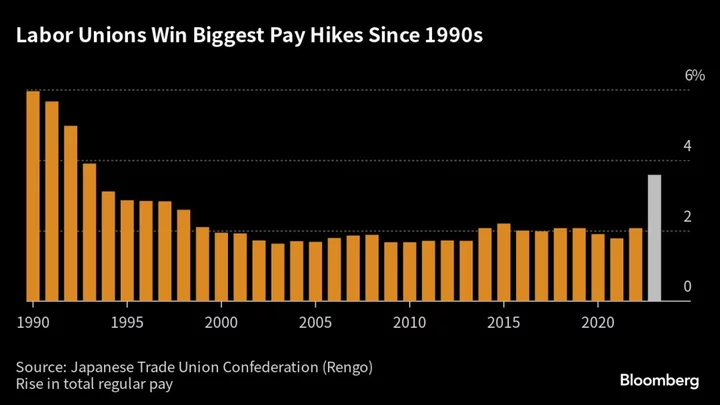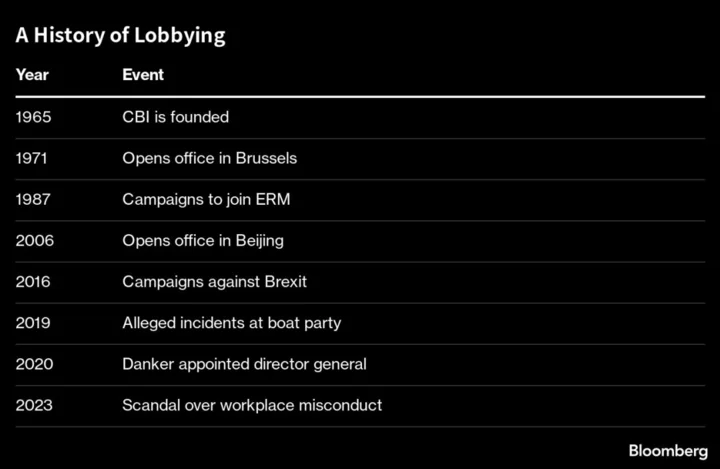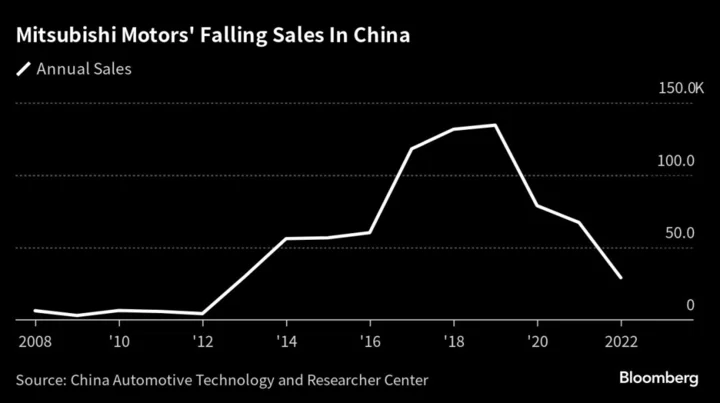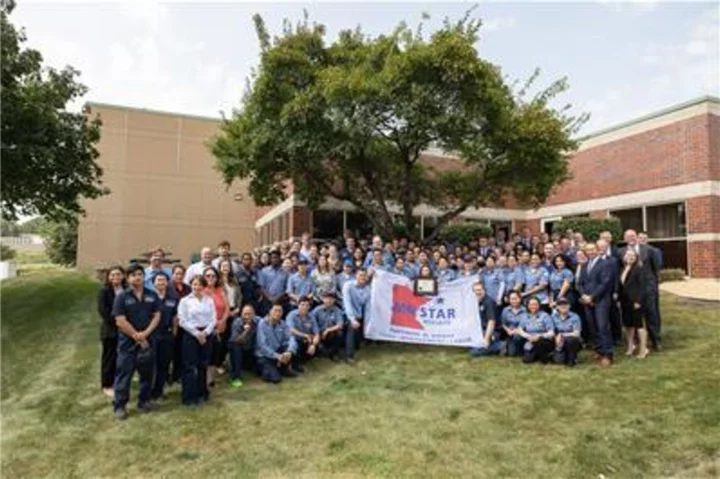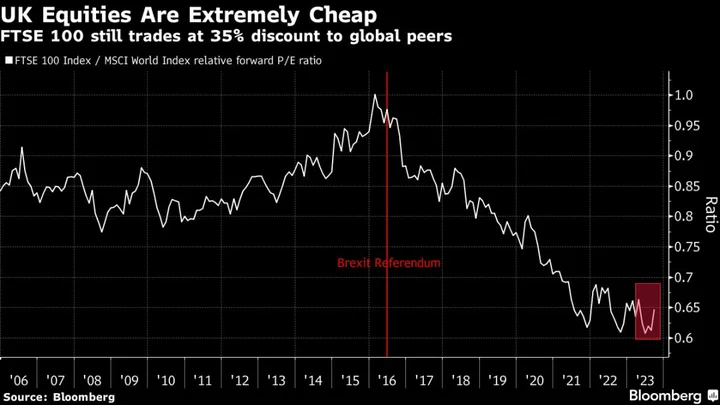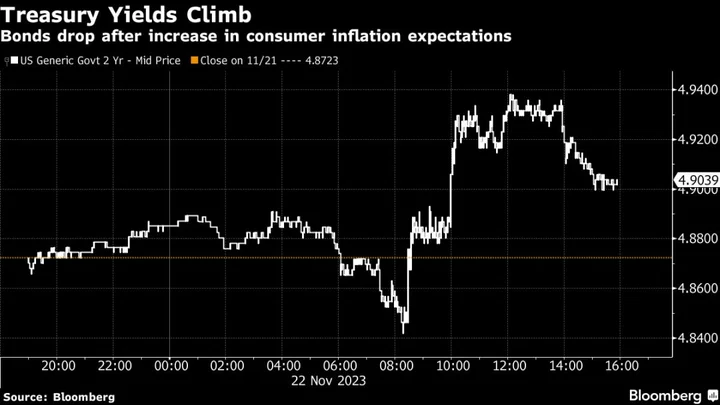Companies that raise wages aggressively are outperforming their frugal peers on the Tokyo stock market as payslips become a yardstick for success in post-deflationary Japan.
While forking out more money to attract and retain talent is normal business practice in most places, it marks a shift in Japan, where salaries moved at glacial pace and workers put job security ahead of a raise after the nation’s economic bubble burst in the early 1990s.
Now as the working age population shrinks rapidly, and inflation eats into household budgets, employers and workers are changing their behavior — with big implications for investors.
“We are going to see winners and losers,” said Hirofumi Kasai, a senior strategist at Tokio Marine Asset Management, who sees pay as useful barometer of a company’s strength. “Only competitive companies will be able to increase wages,” he said.
Analysts from Nomura Holdings Inc. are among those taking a much closer look at higher wages as a leading indicator of stock-market performance. Their research suggests the link has been at play to some degree for years, even if it’s gone unnoticed by many observers amid a focus on cost controls.
The trend has intensified so much this year that investors are rewarding companies which announce aggressive pay hikes even when they aren’t seeing strong revenue growth, according to Yasuhiro Shimizu, quantitative analyst at Nomura.
A basket of 33 such companies identified by Nomura — including brewer Sapporo Holdings Ltd., supermarket chain Aeon Co. and manufacturer Panasonic Holdings Corp. — has outperformed the Topix index by five percentage points so far this quarter.
Companies that have announced large raises for workers have typically seen their profits beat forecasts the following the year, according to Nomura’s analysis of data back through 2014.
As wage hikes become more wide spread, there’s potential for more impact to flow through into stocks. Japanese labor unions won a historic rise in total regular pay of 3.6% during annual spring negotiations this year, up sharply from 2.1% in 2022. Within this broad increase, there was much divergence, with some companies actually offering more than unions demanded, while laggards provided smaller wage hikes than last year.
“We haven’t seen such a wide gap before,” said Kengo Yamamoto, a fund manager at Norinchukin Zenkyoren Asset Management. “If companies that did not announce wage hikes fail to raise pay again next year, I’m sure people will start quitting those companies. We are likely to start to see a real battle for talent.”
Aeon, which is the nation’s largest private-sector employer, has made a conscious decision to invest in human resources as the working-age population shrinks.
Shares of the company have climbed more than 20% since the end of March, the month when it announced a 7% raise for about 400,000 part-time workers. The Topix index is up about 12% over the same period.
Japan’s working-age population is set to shrink by 6% during the 10 years to 2030, and by another 12% in the following decade, according to government forecasts. Meanwhile, the jobless rate is around 2.5%, not far from a low of 2.2% hit just before the pandemic.
“It is certain that higher salaries will attract better talent,” said Kuni Kanamori, a senior analyst at SMBC Nikko Securities. “This investment in talent will lead to higher quality products. The effects might not show until next financial year, but I feel that ‘the seeds have been sown’ for the gap between good companies and bad companies to widen.”

